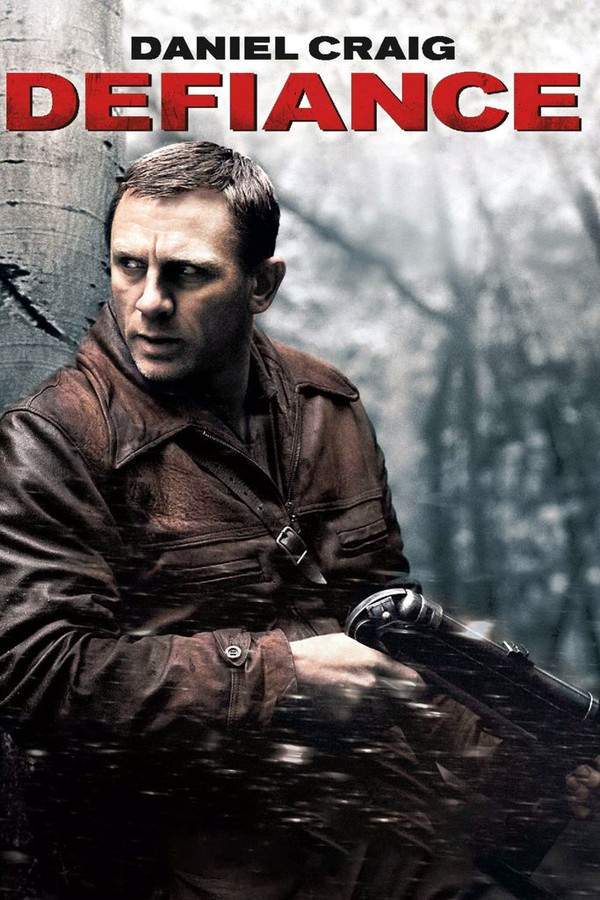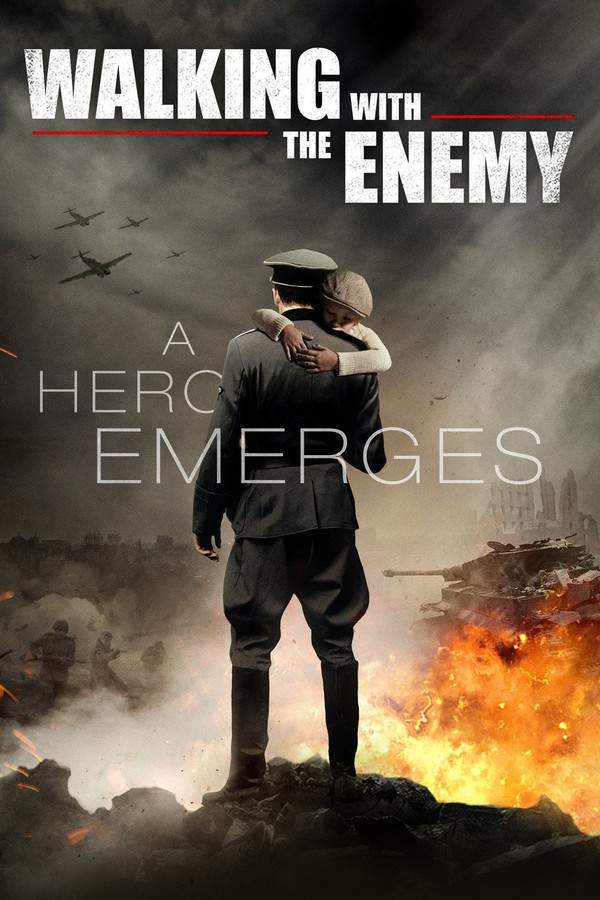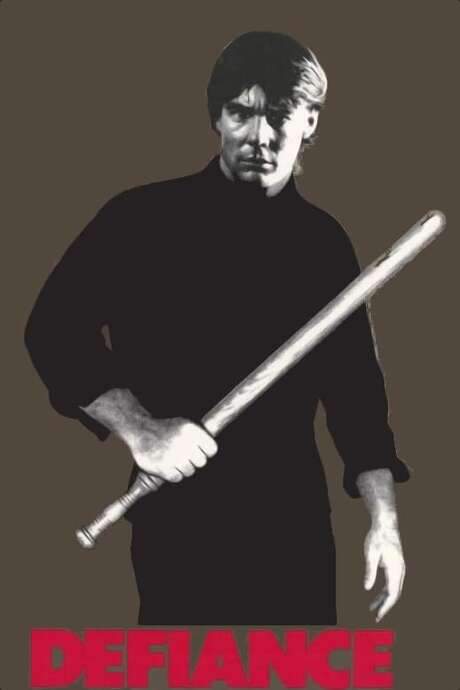
Defiance 2008
Directed by

Edward Zwick
Made by

Paramount Home Entertainment
Test your knowledge of Defiance with our quiz!
Defiance Plot Summary
Read the complete plot summary and ending explained for Defiance (2008). From turning points to emotional moments, uncover what really happened and why it matters.
The film tells a powerful and emotional story inspired by true events, commencing in August 1941, just weeks following the brutal invasion of the USSR by Nazi Germany. As history unfolds, the infamous Einsatzgruppen—Nazi task forces—sweep through Eastern Europe, trailing behind the aggressive army across the occupied regions of western Soviet Union, intent on systematically exterminating Hebrews. Within a short span, the staggering number of 50,000 Hebrews have met a tragic fate, while an alarming 1,000,000 more await inevitability in deportation and death.
In the eye of this storm, the courageous Belarusian Hebrew brothers, known as the Bielski brothers, emerge as a beacon of hope. The trio consists of Tuvia (Daniel Craig), the eldest, Zus (Liev Schreiber), and Asael (Jamie Bell), along with their brother Aron (George MacKay). Their fate takes a dramatic turn as they narrowly escape the clutches of the Nazi purges, hiding to avoid detection and evading the grips of the local police who are actively collaborating with the Germans.
Having lost their parents to a harrowing murder at the hands of local authorities under German orders, the brothers find refuge in the Naliboki Forest. This forest, which holds deep memories of their childhood, becomes their sanctuary as they seek vengeance for the loss inflicted upon their family. While Tuvia opts for strategic guerrilla warfare, preferring to outsmart the enemy rather than confront them head-on, Zus, driven by impatience and grief, craves immediate retribution. With his wife and child on his mind, he is anxious for their safety and soon hopes to reunite with them.
The brothers adapt under tremendous pressure, learning to thrive in constant motion and evading capture. Although they ponder a planned attack against the Germans to avenge their slain parents, they grapple with the severe lack of weaponry and resources. Fueled by rage, Tuvia makes a pivotal decision by eliminating a local Auxiliary Police chief, a key figure responsible for their parents’ demise.
As they navigate through perilous times, the brothers encounter other Hebrew escapees hiding in the forest, igniting a glimmer of hope as they take these individuals under their protective wing. Initially reluctant, Zus argues that their energies should be focused solely on eliminating the Germans rather than nurturing the needs of fellow Hebrews, yet Tuvia maintains that they cannot abandon those whom they have rescued. Their continuous fight for survival leads them to gather supplies from the local populace, who are met with mounting risks from the ever-watchful German forces.
As their group expands to include women and children, shelters are built from the surrounding woodlands. Over the next year, this blossoming community seeks refuge, embarking on daring raids of local farms for sustenance. But amidst their struggles, tragic news reaches Zus, shattering his already fragile state: his beloved wife and child have been reported dead in the camps they attempted to escape.
Driven by this devastating revelation, Zus’s desire for revenge intensifies, colliding with Tuvia’s strategy of cautious survival. As tensions rise, Tuvia implores the need for strategy over impulse, promoting the notion that their survival itself stands as the ultimate form of revenge. However, the friction between the brothers escalates, as the survivors look to Tuvia for accountability, while he advocates for collective resilience rather than divisive scheming.
Their camp ultimately faces devastation during a German raid, fortunately, their scouts offer timely warning, allowing many to escape. Zus, harboring resentment towards Tuvia for his non-violent stance, becomes restless. With winter on the horizon, he resolves to join a local band of Soviet partisans—the brothers’ fates now diverging as Tuvia remains steadfast with the camp as a leader, nurturing the people who rely on him.
As tensions amplify, Tel Aviv cementing relationships leads to Asael falling in love with Chaya Dziencielsky (Mia Wasikowska), culminating in a heartfelt marriage just before winter strikes. Yet love is shadowed by the grim circumstances surrounding them and the risk that lies ahead. The camp endures a chilling winter filled with sickness and starvation, fighting against the likelihood of betrayal from within.
The pressure mounts when the brothers learn that an imminent German attack is underway. The Soviet partisans decide to retreat eastward, leaving the remaining Hebrews to cling desperately to survival. As chaos reigns during the strike of German dive-bombers, a courageous delay is orchestrated by Asael, yet the odds are stacked high against them, leading to heartbreak and loss.
The film’s climax unfolds with relentless tension as Zus returns, defying the orders of the Soviet leader and joins forces with the camp once again, culminating in a heroic charge against their enemies. These brave souls find a new resolve, fleeing into the heart of the forest where they would endure, ultimately building a home and sanctuary over the course of two years—creating a community expanding up to 1,200 survivors.
In a poignant conclusion, the film reflects on the true fates of these remarkable brothers. As historical photographs reveal the Bielski brothers’ remarkable journey, we learn of their survival and eventual journey to America where they constructed a successful trucking business. Not only did their legacy stand the test of time, but it also became a testament to the thousands of descendants of those they saved—a lasting impact that illustrates the profound resilience of the human spirit amidst insurmountable adversity.
Defiance Timeline
Follow the complete movie timeline of Defiance (2008) with every major event in chronological order. Great for understanding complex plots and story progression.
Nazi Invasion
In August 1941, Nazi Germany launched its invasion into the USSR, marking the beginning of brutal conflict. The Nazi Einsatzgruppen executed systematic killings of Hebrews, leading to the murder of 50,000 in mere weeks.
Bielski Brothers' Loss
The Bielski brothers, Tuvia, Zus, Asael, and Aron, escape the Nazi purge, having lost their parents to local police colluding with the Germans. Vowing to avenge their parents’ deaths, they flee to the Naliboki Forest, a place reminiscent of their childhood.
Diverging Tactics
Tuvia advocates for guerrilla tactics to combat the Germans, emphasizing strategy over direct confrontation. In contrast, Zus grows impatient and seeks immediate action, driven by the desire to protect his wife and child.
First Act of Revenge
Tuvia takes the initiative and successfully kills the local Auxiliary Police chief who was responsible for the death of their parents. This act of revenge marks the brothers' first significant rebellion against their oppressors.
Gathering Survivors
As the brothers hide in the forest, they encounter other Hebrew escapees and decide to protect them under their leadership. The growing group faces challenges with food and shelter, leading Tuvia and Zus to gather supplies from local villagers.
Building a Community
With a larger group of survivors, the brothers establish a settlement in the forest, constructing shelters from wood. They build a sense of community as they share resources, navigating the complexities of survival amidst constant danger.
Increased Tension
Zus learns from new arrivals that his wife and child have been killed in a concentration camp. Grief-stricken, he grows increasingly restless, urging Tuvia to take direct action against the Germans to avenge their families.
Conflict Over Leadership
Tuvia faces dissent among the survivors and a mounting rivalry with Zus regarding strategies for survival. While Tuvia pushes for a cautious approach, prioritizing the group’s safety, Zus rebels and pursues his own vision of direct confrontation.
Settlement Discovered
The brothers' settlement in the forest is discovered by the Germans after a betrayal by local collaborators. The survivors narrowly escape, illustrating the constant threat they face and the necessity for Tuvia's cautious leadership.
Joining Forces with Partisans
As winter approaches, Zus leaves the camp to join a company of Soviet partisans, while Tuvia remains with their group as the leader. Their alliance allows the Hebrew camp to obtain protection in exchange for supplies.
New Relationships
Among the camp’s refugees, Asael finds love with Chaya Dziencielsky and marries her just before the harsh winter sets in. Meanwhile, Tuvia harbors feelings for a Polish refugee but never acts on them, focusing instead on their survival.
Imminent Danger
After enduring a winter filled with sickness and hunger, the camp learns of an impending German attack, triggered by earlier raids. The Soviet partisans opt for retreat, leaving the Hebrews to defend themselves.
Desperate Defense
A small group, led by Asael, stays behind to slow the advancing German troops, but they are soon overwhelmed. This act of bravery highlights the community’s commitment to protecting one another against escalating dangers.
Final Stand and Rescue
As the survivors face a formidable German assault, they are unexpectedly rescued by Zus and his partisan group, who attack from the rear. Their efforts culminate in their escape into the forest, showcasing the enduring bonds formed through strife.
Legacy of the Bielski Brothers
The survivors thrive in the forest, establishing hospitals, schools, and growing their number to 1,200. After the war, Tuvia, Zus, and Aron settle in America, leaving behind a legacy of resistance and survival that endures through generations.
Defiance Characters
Explore all characters from Defiance (2008). Get detailed profiles with their roles, arcs, and key relationships explained.
Tuvia Bielski (Daniel Craig)
Tuvia Bielski emerges as the calm and calculated leader of the brothers, prioritizing survival and community over direct confrontation with the enemy. His strategic mind often puts him at odds with his more impulsive brother, Zus, as he seeks to protect their growing group of refugees. Tuvia represents resilience, empathy, and a desire for revenge tempered with practicality.
Zus Bielski (Liev Schreiber)
Zus Bielski is portrayed as the more aggressive and action-oriented brother, driven by a consuming desire for revenge against the Germans. His impatience often leads to impulsive decisions that jeopardize their safety. Despite his fiery temperament, Zus exhibits a deep loyalty to his family and friends, illustrating the complexities of his character as a protector and fighter.
Asael Bielski (Jamie Bell)
Asael Bielski serves as the intermediary between his brothers, often caught in their ideological battle about survival tactics. His character develops from a naive young man to someone who appreciates the gravity of their situation, especially as he experiences personal loss. Asael’s growth signifies the harsh realities faced by those fighting for their lives during the war.
Defiance Settings
Learn where and when Defiance (2008) takes place. Explore the film’s settings, era, and how they shape the narrative.
Time period
August 1941 - 1944
The movie takes place during the early years of World War II, a period characterized by the Nazi invasion of the Soviet Union and widespread atrocities against Jewish populations. This time is marked by desperation, survival, and the struggle against oppressors. As the war drags on, the brothers and their compatriots face constant threats to their lives while seeking to maintain their humanity.
Location
Naliboki Forest, Eastern Europe
The Naliboki Forest serves as a critical refuge for the Bielski brothers and other Jewish survivors during the turmoil of World War II. Known for its dense vegetation, it offers both shelter and resources for the group as they hide from the Nazi forces. The forest becomes a symbol of hope and resilience amid the horrors of war.
Defiance Themes
Discover the main themes in Defiance (2008). Analyze the deeper meanings, emotional layers, and social commentary behind the film.
⚔️
Survival
Survival is at the heart of 'Defiance,' showcasing the lengths to which individuals go to protect themselves and their loved ones in extreme circumstances. The Bielski brothers embody resilience as they transform from victims into protectors, creating a community in the face of death. Their story highlights not merely the instinct to survive, but the need to preserve dignity and humanity amid chaos.
🤝
Brotherhood
Brotherhood is a central theme, focusing on the bond between the Bielski brothers as they navigate the challenges of leadership and moral conflict. Their differing perspectives on revenge and protection create tension but ultimately showcase a deep commitment to each other and their community. This theme emphasizes the importance of unity and collaboration during the direst of circumstances.
💔
Loss
Loss is profoundly felt throughout the narrative, as each brother grapples with the death of their family and the ongoing threat to their community. The haunting effects of grief drive some characters to seek revenge while others strive for survival. This theme illustrates how loss can shape identities and influence decisions in the fight against oppression.

Coming soon on iOS and Android
The Plot Explained Mobile App
From blockbusters to hidden gems — dive into movie stories anytime, anywhere. Save your favorites, discover plots faster, and never miss a twist again.
Sign up to be the first to know when we launch. Your email stays private — always.
Defiance Spoiler-Free Summary
Discover the spoiler-free summary of Defiance (2008). Get a concise overview without any spoilers.
In the winter‑scarred woods of Eastern Europe, 1941 brings an oppressive atmosphere that hangs over every hidden clearing and whispered footstep. The forest, both a refuge and a frontier, is painted with muted greens and the stark, cold light of a world on the brink. Within this austere landscape, the story follows three brothers who flee the chaos of occupied land, seeking safety among the trees that once cradled their childhood. The tone is gritty yet hopeful, a blend of stark realism and quiet heroism that invites the audience to feel the weight of survival without ever revealing the full scope of danger that looms beyond the canopy.
The eldest, Tuvia, carries the weight of responsibility with a measured, strategic mind, preferring careful planning over reckless aggression. His middle brother, Zus, is driven by raw emotion and a fierce need for immediate action, often clashing with his sibling’s caution. The youngest, Asael, offers a steadier, more compassionate perspective, trying to bridge the gap between ambition and necessity. Their differing temperaments create a dynamic tension that fuels the narrative, each brother embodying a distinct response to the turmoil surrounding them while remaining bound by family loyalty and shared loss.
Together, they transform the forest into a hidden haven, gathering a small but growing group of people who seek shelter from the surrounding darkness. The makeshift settlement hums with the quiet determination of those who have learned to live off the land, sharing scarce resources and forging a fragile community out of necessity. Their presence is a whispered promise of resistance, an unspoken agreement that cooperation and ingenuity are essential to endure the harsh reality beyond the trees.
At its core, the film explores themes of resilience, unity, and the moral weight of leadership under extreme pressure. The atmosphere remains tense yet intimate, inviting viewers to contemplate how ordinary individuals can become guardians of hope when faced with unimaginable adversity, all while the forest itself stands as both protector and test of their resolve.
Can’t find your movie? Request a summary here.
Movies with Similar Twists and Themes
Uncover films that echo the narrative beats, emotional arcs, or dramatic twists of the one you're exploring. These recommendations are handpicked based on story depth, thematic resonance, and spoiler-worthy moments — perfect for fans who crave more of the same intrigue.
Featured on this page

What's After the Movie?
Not sure whether to stay after the credits? Find out!
Explore Our Movie Platform
New Movie Releases (2025)
Famous Movie Actors
Top Film Production Studios
Movie Plot Summaries & Endings
Major Movie Awards & Winners
Best Concert Films & Music Documentaries
Movie Collections and Curated Lists
© 2025 What's After the Movie. All rights reserved.











